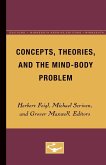The Scientific Marx was first published in 1986. Minnesota Archive Editions uses digital technology to make long-unavailable books once again accessible, and are published unaltered from the original University of Minnesota Press editions. Marx advanced Capital to the public as a scientific explanation of the capitalist economy, intending it to be evaluated by ordinary standards of scientific adequacy. Today, however, most commentators emphasize Marx's humanism or his theory of historical materialism over his scientific claims. The Scientific Marx thus represents a break with many current views of Marx's analysis of capitalism in that it takes seriously his claim that Capital is a rigorous scientific investigation of the capitalist mode of production. Daniel Little discusses the main features of Marx's account, applying the tools of contemporary philosophy of science. He analyzes Marx's views on theory and explanation in the social sciences, the logic of Marx's empirical practices, the relation between Capital and historical materialism, the centrality of micro-foundations in Marx's analysis, and the minimal role that dialectics plays in his scientific method. Throughout, Little relies on "evidence taken from Marx's actual practice as a social scientist rather than from his explicit methodological writings." The book contributes to current controversies in the literature of "analytic Marxism" joined by such authors as Jon Elster, G.A. Cohen, and John Roemer.
Hinweis: Dieser Artikel kann nur an eine deutsche Lieferadresse ausgeliefert werden.
Hinweis: Dieser Artikel kann nur an eine deutsche Lieferadresse ausgeliefert werden.








